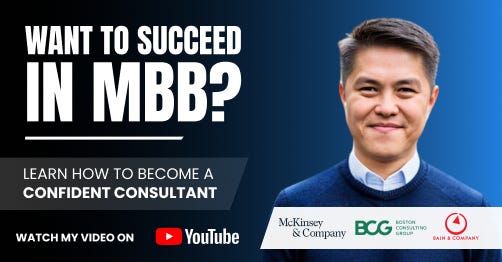Do you unknowingly create barriers?
Consulting is a people's business. A strong personal connection is crucial for success. But, consultants often create communication barriers. It deteriorates relationships with partners and clients.
Picture this:
You're in a meeting with a partner, laptop open, furiously typing notes.
You don't want to miss any critical information. And you know that converting digital notes into emails or slides will be much easier. It's convenient and productive.
But you build invisible walls between you and your partners.
They don’t see what you do on your computer, and for them, it looks like you are distracted by something else.
They might ask themselves:
"Do they even listen to me? What are they doing? Chatting with friends?"
Additionally, it’s extremely difficult and off-putting to speak to a distracted person.
This becomes even clearer during Zoom calls.
When you open a new window to take notes, your partners can see the bright screen reflecting in your eyes or glasses. You think you are being sneaky, but it’s super visible.
I know it's irrational.
Obviously, you are taking notes, not playing games or chatting with friends.
But people are people. They feel emotions.
At that moment, they feel disconnected, unimportant, and unheard.
And I promise, you don't want to be a person who triggers these negative emotions, especially if you are talking with partners who evaluate you.
Do you recognize yourself in this situation?
Do you make other communication mistakes?
Let's explore them:
1. The poker face
Some consultants don't react or show emotion when you speak to them. It feels like talking to a wall—an extremely unpleasant experience.
2. The idea killer
Consultants often focus on explaining why something can't be done instead of what can be done. They come across as a people without a 'can-do' attitude.
3. The yes-person
Another annoying situation is when consultants agree to everything. Partners are unsure if they even understand anything or simply nod along.
4. The complainer
We all have met people who always complain and are negative. It's annoying and energy-draining, so we try to avoid speaking with them, don't we?
These seemingly innocent behaviors create friction.
Although people tolerate them, they don’t tell you these things as it's quite awkward.
But over time, friction accumulates, and people will avoid speaking to you.
And you don't want to create this drag for yourself.
Because in consulting, every little bit helps.
So, what can you do instead?
Here are some practical tips:
1. Take notes in a paper notebook
Funny enough, people don't feel bad when we take notes on paper. Maybe it's a habit or a generational thing. But I bet it will work well with your partners, as they are most likely older than you.
2. Listen actively
Don't just listen silently. Show that you are engaged by asking clarifying questions and paraphrasing. This will comfort your partners by letting them know you truly understand them.
3. Reinforce positively
Use facial expressions, gestures, and body language. Even simply smiling and nodding will make a big difference.
Remember, consulting is all about people.
Your relationships will matter more than the details of your work.
Next time you meet a partner, ask yourself:
Do you unknowingly create communication barriers?
Instead, you must remove friction and strengthen relationships.
After all, isn't that what you want? To be a consultant partners love working with?
The consulting journey is complex and treacherous. Walking it alone is extremely difficult. It’s helpful to have the support of someone experience who has gone through this journey and helped many others.
If you are an MBB consultant and sick of struggling with performance and development, especially for you, I created…
FREE VIDEO TRAINING on accelerating your development, achieving high performance, and becoming a confident consultant. You can learn a reliable development system and quick wins to kick-start your momentum.
Book a Free 1-1 Consultation to discuss whether I can help you through my coaching program. There is no commitment, and you can ask any burning questions in a risk-free environment.
Read this post to learn more about the Hero’s Journey coaching program.


